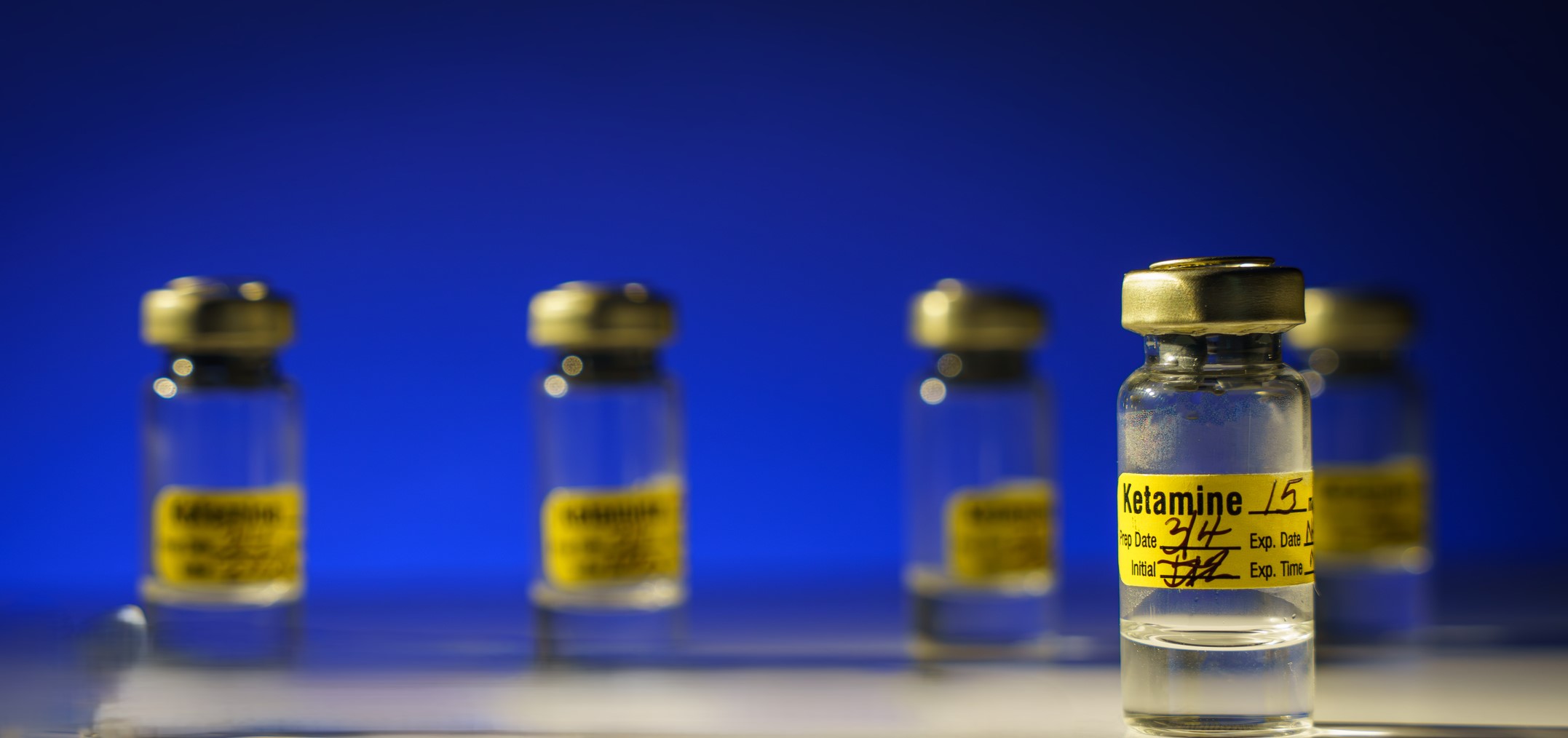News release
From:
A new University of the Sunshine Coast study has found small amounts of liquid ketamine administered in a clinical setting can significantly reduce symptoms of post-traumatic stress disorder, with fewer side effects.
Published today, the study by researchers from the new National PTSD Research Centre at the University of the Sunshine Coast, is the first open-label clinical trial to explore the feasibility, safety and tolerability of low-dose oral ketamine for PTSD treatment.
Ketamine - a short-acting anaesthetic medication – is being tested as a fast-acting treatment for PTSD and depression. However, this off-label use is usually delivered through injections or infusions which need to be administered in a hospital.
In the UniSC study, 73 percent of participants reported that their PTSD symptoms had reduced by more than half, one week after finishing the oral ketamine treatment, which involved one ketamine drink each week for six weeks. One month after receiving their last dose, 59 percent of participants, many with PTSD their entire adult lives, said their symptoms remained less than half what they were when they started the trial.
Senior investigator Professor Dan Hermens said the finding suggested oral ketamine was potentially a more accessible, affordable option for PTSD patients, with a lower chance of adverse reactions than intravenous (IV) ketamine.
“Despite extensive studies on IV ketamine infusions, there are gaps in understanding the most effective dosage levels and the best way to administer the drug as a treatment,” Professor Hermens said.
“Our study found oral ketamine – administered in small amounts to study participants once a week as a drink in a clinical setting – is a safe, well-tolerated form of therapy that could be integrated into ongoing treatment programs of PTSD patients,” he said.
In addition, the oral ketamine PTSD study group reported feeling significantly less depressed, less stressed and less suicidal after the treatment. They said they had better sleep, a better quality of life, improved social and occupational functioning and overall wellbeing.
“That oral ketamine can improve a spectrum of mental health symptoms in a short period of time is significant, as over 90 percent of people diagnosed with PTSD also experience a psychiatric disorder such as suicidal ideation, anxiety, alcohol use disorders and depression,” Professor Hermens said.
Twenty-two men and women aged 22-77 years, including some who have had PTSD their entire adult life and most who also had clinical depression, took part in the clinical trial conducted at the recently opened National PTSD Research Centre within UniSC’s Thompson Institute at Birtinya on the Sunshine Coast.
Lead author, UniSC Thompson Institute Research Fellow and Molecular Biology Program Leader Dr Bonnie Quigley said the results were comparable to intravenous ketamine treatments for PTSD, however taking the drug in liquid form offered significant advantages.
“Oral ketamine patients can be treated at their doctor’s office – while IV ketamine needs to be administered in a hospital or clinic setting under medical supervision,” Dr Quigley said. “This limits its use, especially for treatment programs that require daily or intermittent dosing schedules.”
Participants also reported less of the known side effects associated with intravenous ketamine administration, such as headaches, dizziness, trouble breathing, irregular heartbeat, and feelings of dissociation, anxiety and agitation.
“Importantly, all participants reported that side effects from oral ketamine had resolved before their discharge from the study,” Dr Quigley said.
“Overall, oral ketamine is also cheaper than IV or intranasal ketamine, potentially making to available to more people.”
The researchers said that amount of oral ketamine administrated over the treatment period was gradually increased as a deliberate aspect of the trial protocol.
“Adopting an initial lower dose was designed to assess each patient's tolerance to oral ketamine before gradually increasing it, striking a balance between minimising side effects and maximising the achievable benefits,” Dr Quigley said.
“The study results are promising for future trials to determine treatment strategies for PTSD, incorporating oral ketamine.”



 Australia; QLD
Australia; QLD


